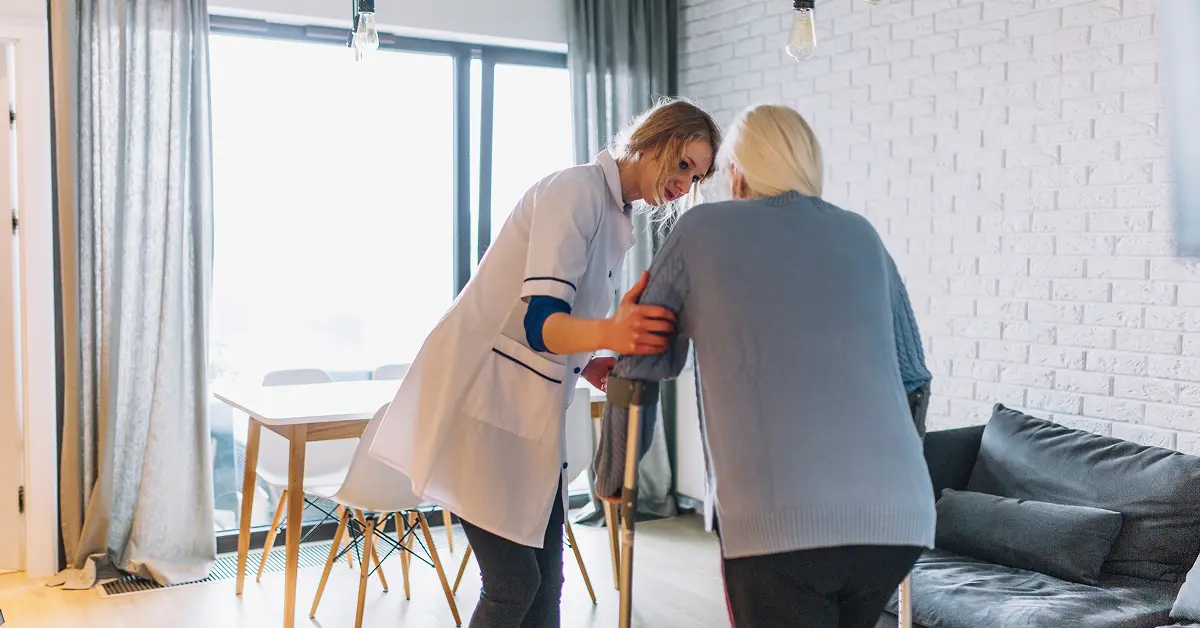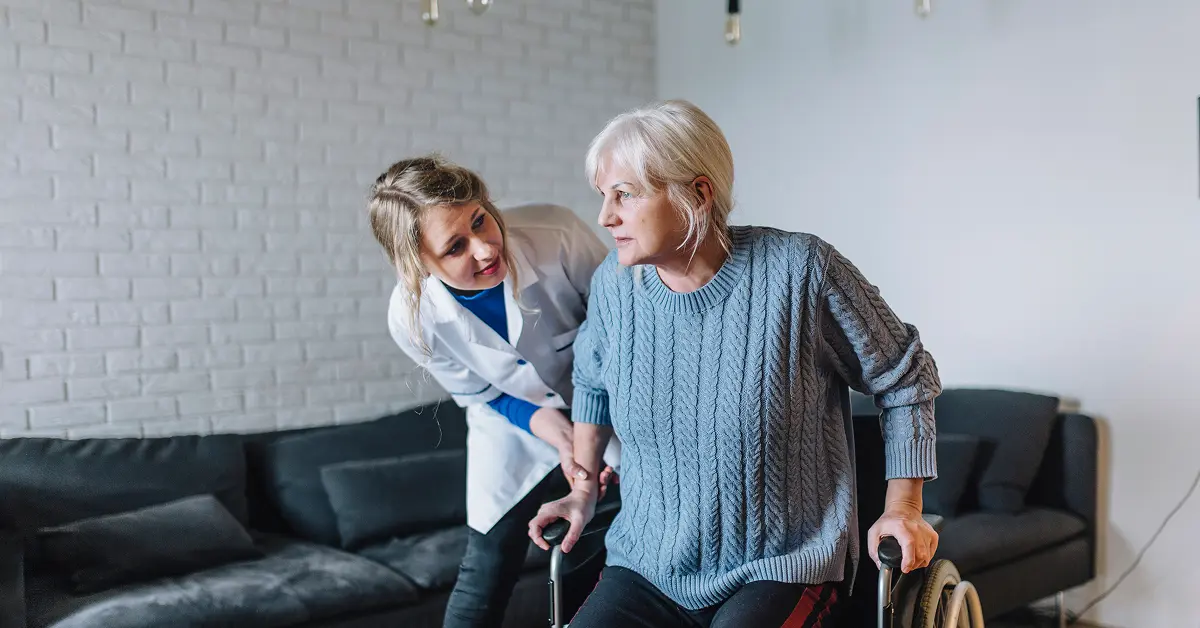Recovering from surgery is a delicate process, and what happens after the operation can be just as important as the procedure itself. Once discharged from the hospital, many patients return home expecting a peaceful recovery. However, the reality is that without the right kind of Best Caregiver Services at Home complications may arise, discomfort can increase, and recovery may be delayed.
For Indian families juggling work, household responsibilities, and caregiving, understanding the types of at-home care that work best after surgery can make a huge difference. This blog explores the most effective post-surgery home care solutions, why they matter, and how to choose the right care based on patient needs.
Why At-Home Care Matters After Surgery
Hospital stays are shorter than ever before. Whether it’s a knee replacement, gallbladder surgery, C-section, or a more serious procedure, patients are often discharged within 24–72 hours. However, healing continues at home, and without medical staff on hand, patients require assistance to manage medications, wound care, mobility, and more.
Benefits of proper at-home care include:
- Faster healing and reduced complications
- Reduced risk of hospital readmission
- Better emotional comfort in a familiar environment
- More family involvement in care
- Cost savings compared to prolonged hospital stays
In India, the family plays a vital role in caregiving. But even with loved ones around, professional help is often needed to ensure post-surgical protocols are followed correctly.
Types of At-Home Care After Surgery
Let’s break down the key components of at-home care that actually help patients heal effectively:
Skilled Nursing Care
For patients who have undergone major surgeries like organ transplants, cardiac surgeries, or orthopedic procedures, skilled nursing at home can be essential. These professionals can:
- Monitor vital signs
- Administer injections and IV fluids
- Manage wound dressings
- Handle catheter care
- Ensure medication adherence
- Identify early signs of infection or complications
Ideal for: Elderly patients, patients with multiple health issues, or post-operative cases that require clinical supervision.
Physiotherapy and Rehabilitation
For surgeries like joint replacements, spine surgeries, or strokes, physical therapy is often prescribed. A trained physiotherapist visiting the home can:
- Guide exercises and rehabilitation techniques
- Improve mobility and strength gradually
- Reduce stiffness and post-operative pain
- Prevent long-term disability
Tip: In India’s busy metros like Mumbai, Bengaluru, and Delhi, many physiotherapy services offer home visits for added convenience.
Personal Caregivers (Attendants)
Sometimes, patients just need assistance with daily tasks while they regain strength. Trained caregivers or attendants can help with:
- Bathing and grooming
- Feeding assistance
- Medication reminders
- Mobility support (getting out of bed, using the toilet, walking)
- Light housekeeping
This option works well when the surgery was not too complex but the patient needs support in daily living.
Nutrition and Dietary Support
Healing requires the right nutrients. Post-surgical diets are often specific – low salt, high protein, or fiber-rich, depending on the case. A dietitian’s guidance or meal planning can help:
- Speed up tissue repair
- Support the immune system
- Prevent constipation (a common side effect after surgery)
- Maintain energy levels
Home-cooked food tailored to the patient’s needs is best. In some cases, caregivers trained in dietary requirements can help prepare meals.
How to Choose the Right Care for Recovery

Every patient is different. Here’s how to evaluate which kind of at-home care might work best for your loved one:
A. Type of Surgery
Minor procedures: Dressing changes and medication monitoring might suffice.
Major surgeries: A combination of nursing + physiotherapy + caregiver support may be needed.
B. Age and Independence Level
Elderly patients usually need more support. Even after minor procedures, balance issues or weak muscle tone can delay healing or lead to falls.
C. Existing Health Conditions
Patients with diabetes, high BP, or kidney issues need extra monitoring post-surgery, especially with wound healing and medication interactions.
D. Availability of Family Support
In nuclear families or when members are working, professional caregivers can fill in the gaps and reduce stress.
Post-Surgical Care Checklist for Indian Homes
To make sure recovery goes smoothly, here’s a handy checklist to follow:
- Organise the Home for Safety
- Clear pathways for walking aids
- Install grab bars in the bathroom if needed
- Use anti-slip mats - Prepare a Comfortable Recovery Space
- Easy access to water, meds, mobile phone, etc.
- Good ventilation and natural light
- Noise-free and restful environment - Keep Emergency Contacts Handy
- Family doctor
- Nearby hospital
- Local ambulance service - Monitor for Red Flags
- High fever
- Excessive swelling or discharge from wounds
- Breathing difficulty
- Sudden fatigue or dizziness - Stay on Schedule
- Take medications exactly as prescribed
- Follow up with doctors and physiotherapists
- Keep a daily log of progress
Where to Find Post-Surgical Home Care in India
With rising demand, many professional home care agencies now operate in India, especially in tier-1 cities. These services offer:
- Verified and trained caregivers
- Packages based on duration (days, weeks)
- 24/7 emergency support
- Customized care plans
Look for NABH-accredited home health providers or those with strong patient reviews.
Some trusted home care providers in India include:
- Portea Medical
- Care24
- HealthCare atHOME (HCAH)
- Zorgers
- Apollo HomeCare
Before hiring, always check for experience with post-operative cases, caregiver training, and reliability.
Final Thoughts
Surgery may fix the medical issue, but healing truly begins at home. Proper post-surgical care not only reduces complications but also promotes faster physical and emotional recovery. Whether you rely on professional caregivers or support from family members, planning the right kind of care after surgery can make all the difference.
In India’s evolving healthcare landscape, quality at-home care is now more accessible than ever. With the right choices and timely support, patients can recover safely, comfortably, and confidently – all from the comfort of their home.
Contents
Our 24*7 services
Latest Posts
- What Is Respite Care and Why Is It Important
- Affordable home care for senior citizens in India
- Caring for Seniors with Dementia or Alzheimer's at Home
- Senior Caregiving A Guide for Every Family
- How to Write a Caregiver Resume That Gets You Hired
- How Care After Hospital Discharge Speeds Up Recovery at Home
- How to Get Home Health Care for Seniors Through Medicare
- What Does a Senior Citizen Caregiver Really Do at Home
- How to Care for Elderly Parents with Alzheimer’s or Dementia
- How to Get 24-Hour Care for Seniors at Home



